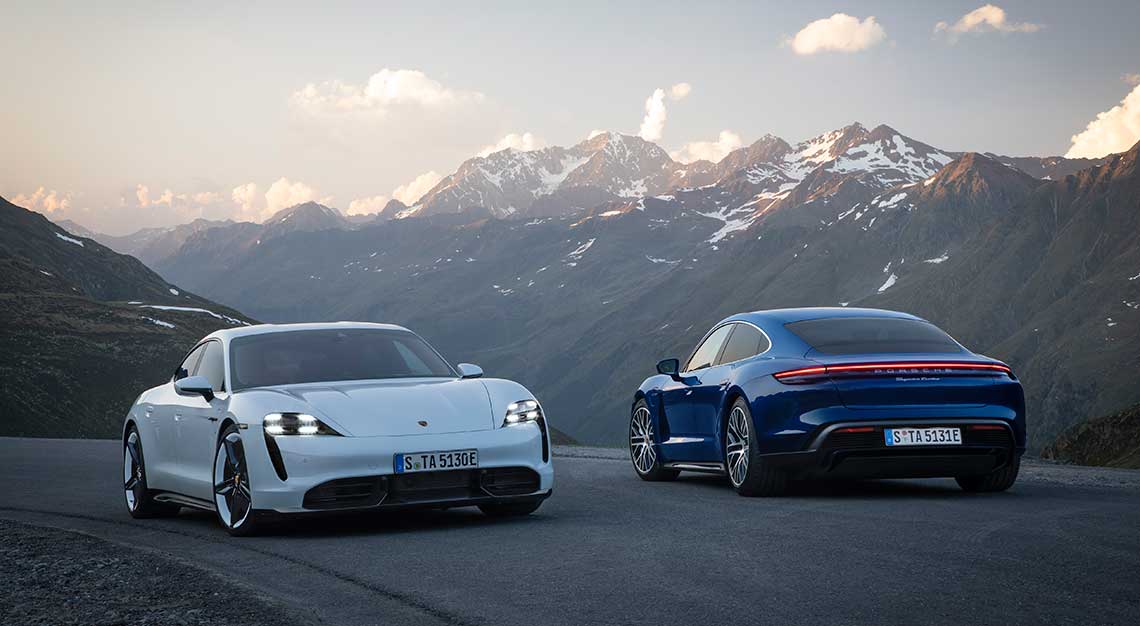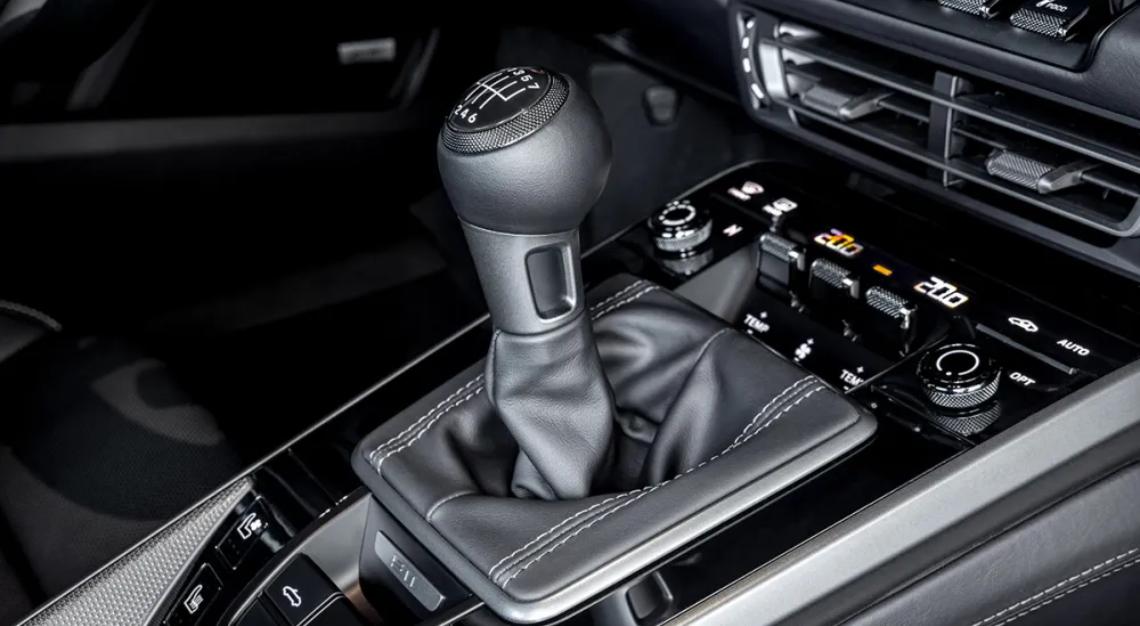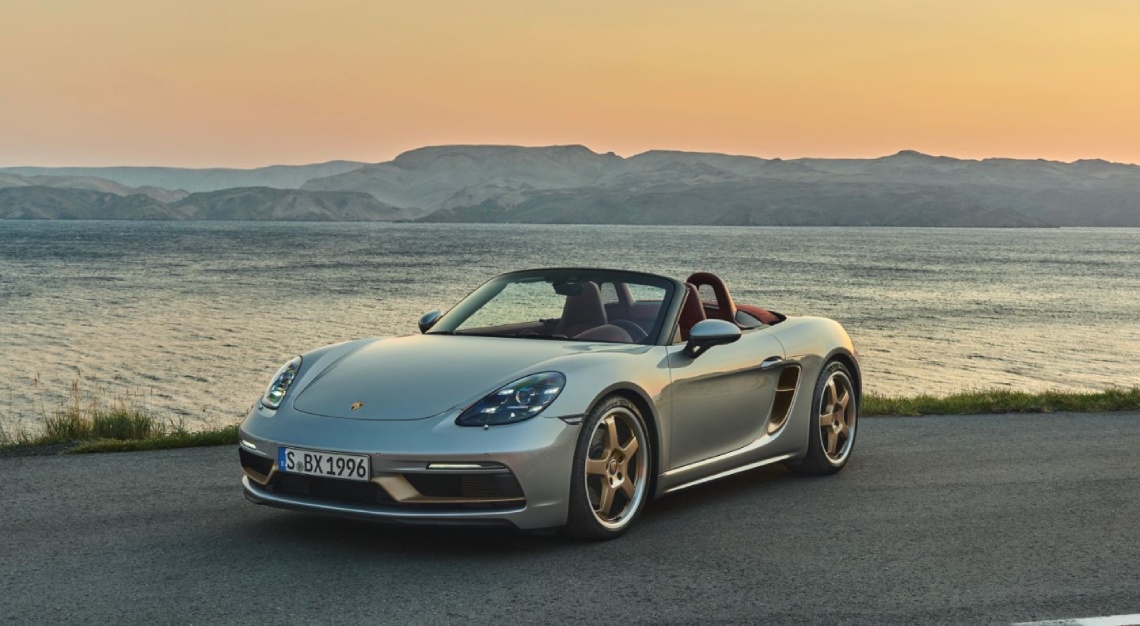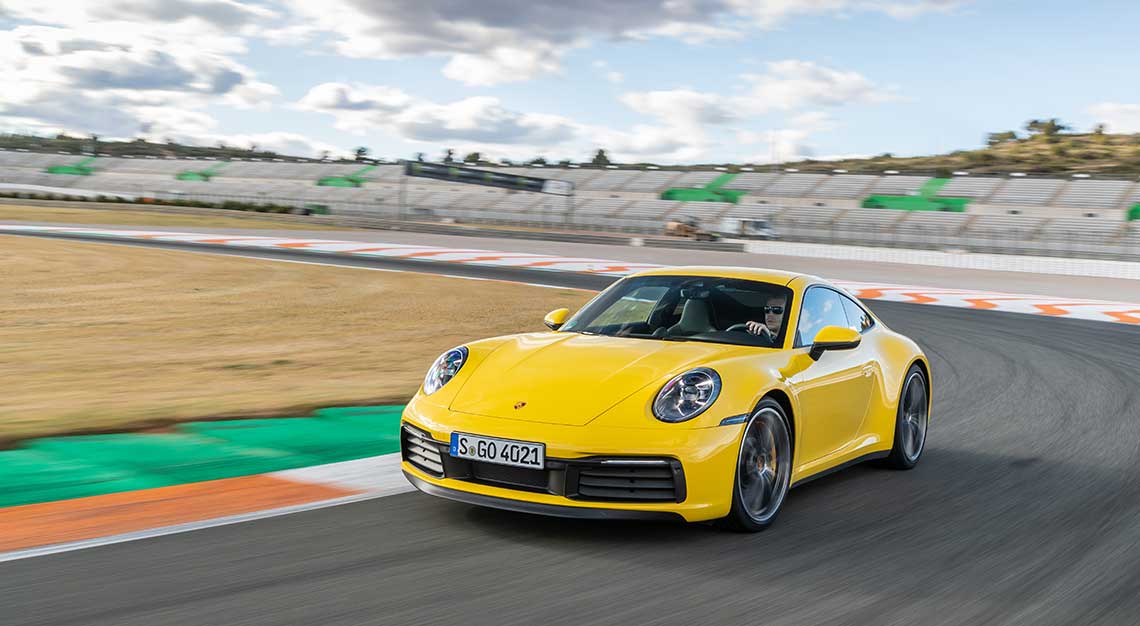Yes, Tay-certainly-can. If you find the design familiar, it’s because the Taycan’s design spawned from Porsche’s Mission E concept. Launch variants include the turbo-less Turbo S, with an output of up to a crushing 761hp
The dominance of Tesla in the electric vehicle (EV) sphere has largely gone unchallenged, but that might soon be about to change with the launch of Porsche’s long-awaited entrant, the Taycan.
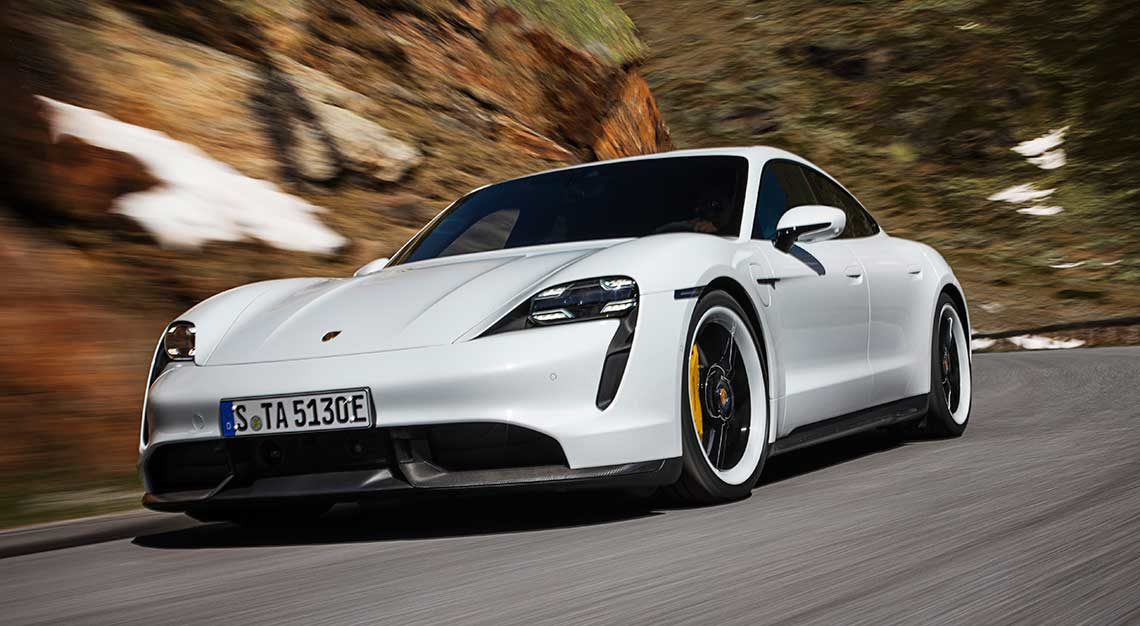
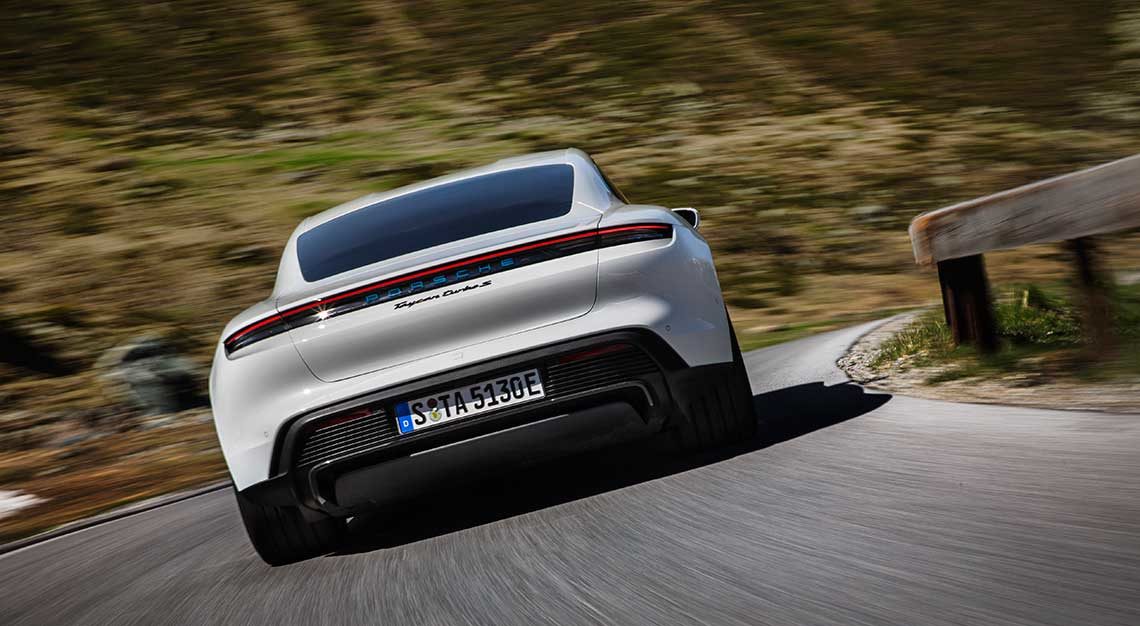
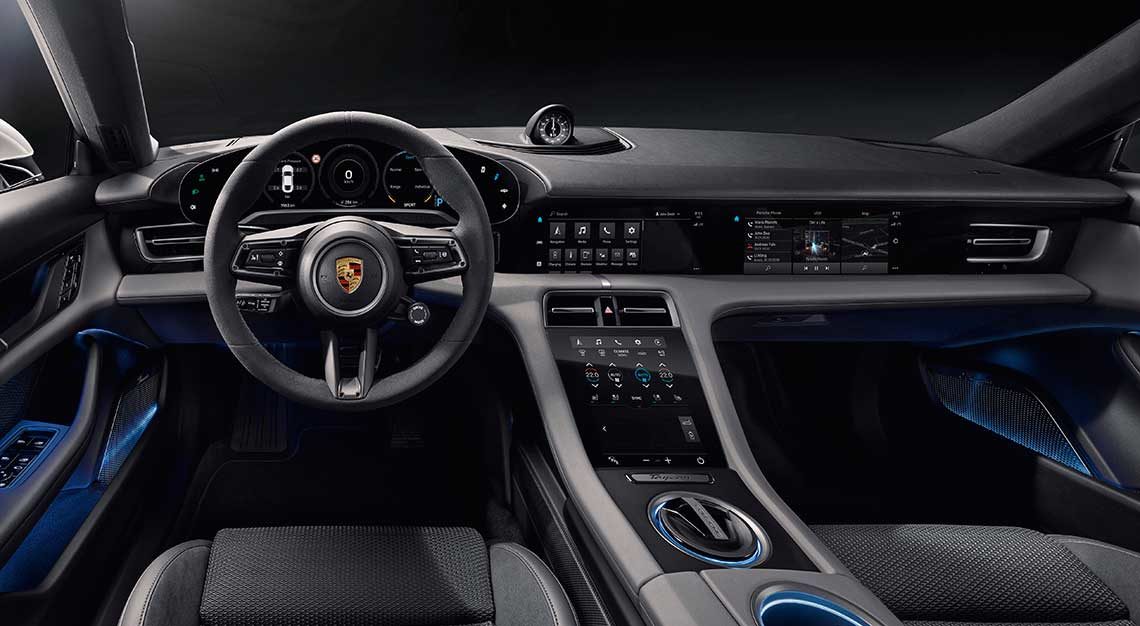
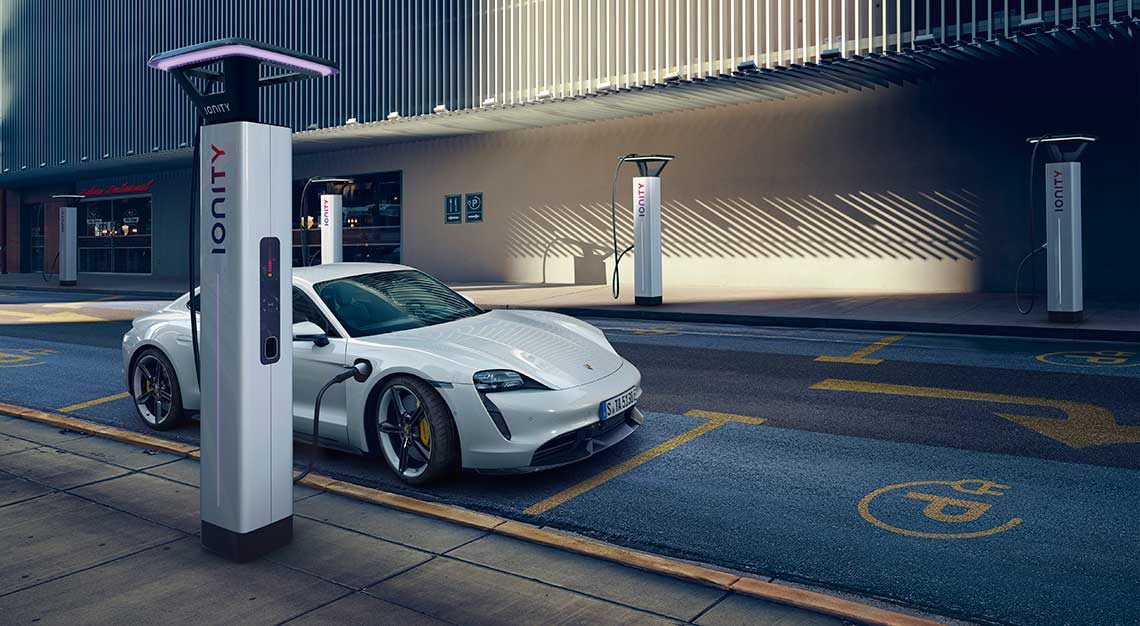
First previewed by the Mission E concept car at the 2015 Frankfurt Motor Show, the Taycan’s lines are carried over almost wholesale from the concept car, though the rear-facing cameras for its wing mirrors, fully flush door handles, B-pillarless body and reverse-hinged ‘suicide’ doors are notable absentees in the production version.
What is carried over is the electric super saloon’s ‘double-bubble’ roof and five-spoke, split-spar duotone wheels. A completely leather-free interior, made with a sizeable portion of recycled materials and microfibre leatherette replacing animal hide can also be had on the Taycan.
At its premiere, Porsche launched two versions of the Taycan — the range-topping Turbo and Turbo S — though it’s worth mentioning that neither car have any turbochargers. The Taycan’s forced-induction nomenclature an obvious nod to Porsche’s history of appending the Turbo badge to all its range-topping models.
Clearly, this applies to all its cars, regardless of whether or not said automobile has a turbocharger, or indeed, an internal combustion engine.
Given the two cars sit atop the Taycan lineup, their performance figures are immense. Both cars produce an identical system output of 625hp from a pair of electric motors powering each axle, though with the presence of an ‘overboost’ (again, the car doesn’t have a turbocharger) function and launch control, the Turbo S and Turbo develop 761hp and 680hp respectively.
This makes the Taycan Turbo S the most powerful product Porsche currently makes, surpassing the current top dog, the Panamera Turbo S E-Hybrid.
Claimed range is 412km for the Turbo S and 450km for the Turbo, with lithium-ion battery pack able to hold up to 93.4kWh if the car is equipped with the Performance Battery Plus. The entire car runs on an all-new, production vehicle-first 800-volt electrical architecture (most other EVs have 400-volt systems), which allows for exceptionally fast charging.
Porsche says in just five minutes, the Taycan can regain around 100km of range, and in 22 minutes, the battery’s state of charge can go from 5-80 percent, with it able to take up to 270kW of peak charging input.
The only catch to that being that there are currently relatively few public charging stations that can provide that kind of power. While such networks are being rolled out across Europe and North America (Tesla’s Superchargers being the most prominent example), such infrastructure isn’t yet available here.
SP Group and most recently Shell have introduced public direct-current (DC) charging stations, but those only have a maximum output of 50kW, though SP Group has said it would be building 350kW-capable stations over the following few years.
Which should be just in time for the Taycan’s launch around the middle of next year. Local pricing has not yet been announced, but European pricing for the Taycan Turbo S and Taycan Turbo are roughly equivalent to the Panamera Turbo S E-Hybrid and Panamera Turbo respectively.
This translates to a Singapore price in the neighbourhood of $835,888 for the Taycan Turbo S and $721,688 for the Taycan Turbo, with both figures exclusive of COE and optional extras. However, Porsche did promise lower-powered and therefore lower-priced variants will be added to the range in the following months.
While the Taycan come with a huge price tag, the bigger killer could be the annual road tax, which for electric cars is based on power output. It’s unclear yet if the cars will be homologated with the ‘boosted’ power or base power, but even at the latter, Taycan owners could be looking at an annual road tax premium just shy of $10,000.
